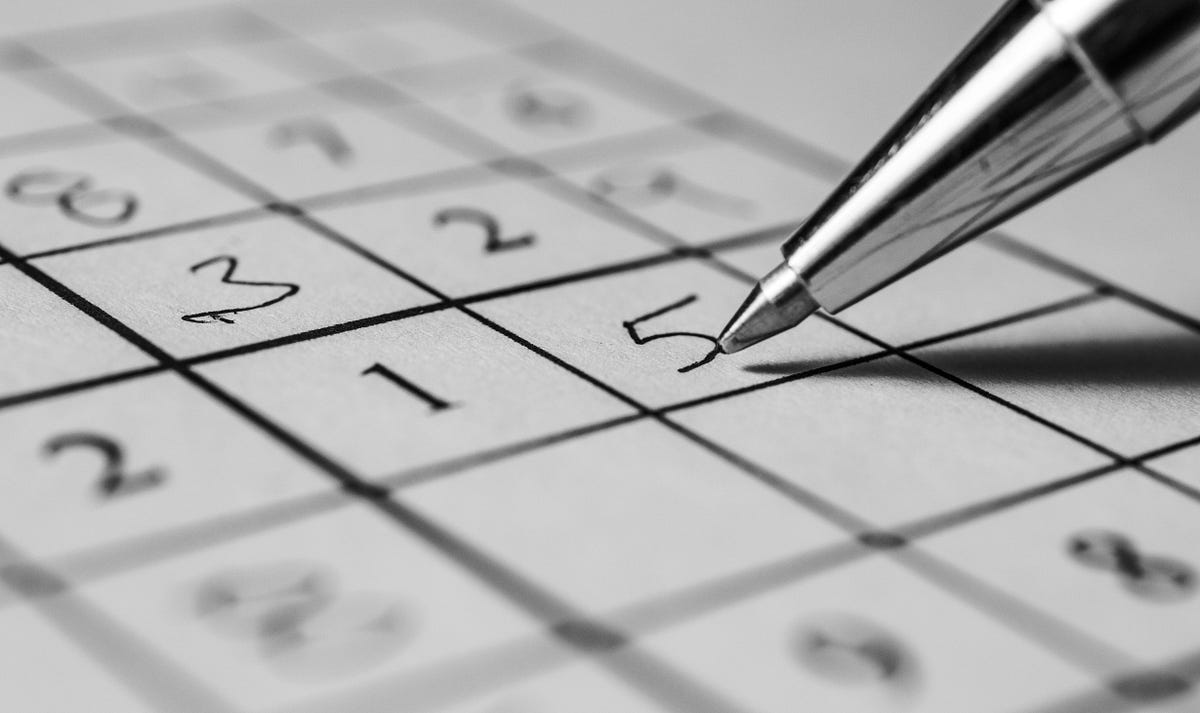
I. Introduction
A. Definition of Sudoku:
Sudoku has gained immense popularity in recent years as an engaging and addictive puzzle game. Originating from Japan, Sudoku has become a globally recognized mental exercise that challenges players of all ages. This article aims to provide a definition and a concise explanation of Sudoku, shedding light on its rules, grid structure, and overall objective. Sudoku is a logic-based puzzle that consists of a 9×9 grid divided into nine 3×3 subgrids. The objective is to fill each empty cell with a single digit from 1 to 9, while ensuring that each row, column, and subgrid contains every digit only once. In other words, the digits in each row, column, and subgrid must be unique.
B. Rules and Structure:
To solve a Sudoku puzzle, one must follow a set of rules. Firstly, the given numbers, known as “clues,” are already filled in some cells of the grid. These clues act as starting points for players to deduce the solution. The remaining empty cells are filled by logically deducing the correct digits through a process of elimination and logical reasoning. It is important to note that there should be only one possible solution for each Sudoku puzzle. The ultimate goal of Sudoku is to fill the entire grid with the correct numbers, meeting the condition of uniqueness in every row, column, and subgrid. While the rules may seem simple, solving a Sudoku puzzle requires patience, concentration, and logical thinking.
Players typically start by identifying the numbers that can only be placed in a specific cell, known as “sole candidates.” By analyzing the given clues and considering the implications of each placement, players gradually fill in the grid. Advanced strategies, such as “pencil marking” or “crosshatching,” involve examining the possibilities for each cell and narrowing down the options until the solution becomes clear.

II. Enhancing Memory and Concentration through Sudoku
A. How Sudoku stimulates the brain
Solving Sudoku requires active mental engagement, as it involves analyzing, strategizing, and problem-solving. Each empty cell presents a puzzle within the puzzle, challenging players to think critically and make logical deductions. By constantly searching for patterns and clues, the brain stays active and engaged, stimulating neural connections in the process. Sudoku exercises memory skills as players need to remember the numbers already placed on the grid and their implications when making decisions. By repeatedly recalling and updating this information, Sudoku enhances short-term memory and strengthens the brain’s ability to retain and retrieve information.Playing Sudoku demands sustained attention and concentration. To solve the puzzle, players must focus, avoid distractions, and maintain mental clarity. By training these cognitive skills, Sudoku improves the brain’s ability to filter out irrelevant information and stay focused on the task at hand. Sudoku puzzles require logical thinking and analytical problem-solving. Players must analyze the given clues, consider the implications of their potential placements, and make logical deductions to fill the empty cells. This process enhances logical reasoning skills and trains the brain to approach problems systematically.
B. The role of memory in solving Sudoku puzzles
Firstly, memory plays a significant role in remembering the rules and techniques of solving Sudoku puzzles. Players must memorize the basic rules of Sudoku, which include filling a 9×9 grid with numbers from 1 to 9, ensuring that no number repeats in the same row, column, or 3×3 box. Additionally, players must be familiar with various solving techniques such as cross-hatching, scanning, and the process of elimination. Memorizing these techniques is essential to approach the puzzle in an organized and efficient manner.
Furthermore, memory aids in recognizing and remembering patterns in Sudoku puzzles. As players progress through a puzzle, they begin to identify recurring patterns or relationships between numbers. These patterns can provide valuable clues that can assist in solving the puzzle. For example, players might identify a hidden pair or a locked candidate, which can determine the placement of other numbers in certain cells. Remembering and utilizing these patterns can significantly speed up the solving process.

C. Benefits of improved concentration
One of the primary advantages of improved concentration is increased productivity. When we are able to concentrate fully on a task, we become more efficient and effective in completing it. Distractions, such as social media notifications or a noisy environment, can disrupt our workflow and hinder our ability to produce high-quality work. By improving our concentration, we can minimize these distractions and devote our full attention to the task, resulting in higher productivity levels.
Furthermore, improved concentration can enhance our learning abilities. When we can concentrate without being easily distracted, we absorb information more effectively, leading to better retention and comprehension. This is particularly beneficial for students or individuals pursuing professional development. By improving their concentration, they can maximize their learning potential and achieve better results in their studies or careers.
In addition to productivity, learning, and problem-solving, improved concentration can also contribute to better mental well-being. By learning to block out distractions and focus on the present moment, we can reduce stress and anxiety levels. Concentration techniques, such as mindfulness or meditation, can help calm the mind and promote a sense of inner peace. This, in turn, can lead to improved mental clarity, increased self-awareness, and overall emotional well-being.

III. Boosting Cognitive Skills with Sudoku
A. Critical thinking and problem-solving abilities
Solving Sudoku puzzles requires the application of critical thinking skills. Players must analyze the given clues, examine the implications of each placement, and make logical deductions to determine the correct numbers for each empty cell. This process involves evaluating different possibilities, considering the consequences of each decision, and using deductive reasoning to arrive at the right solution. By engaging in this rigorous mental exercise, players strengthen their critical thinking abilities. Sudoku is essentially a problem-solving activity that challenges players to find the missing numbers and complete the grid. It requires breaking down complex problems into manageable parts, identifying the constraints and rules of the game, and systematically finding solutions. Players must devise strategies, adapt them as needed, and employ trial and error to overcome obstacles. The continuous practice of problem-solving in Sudoku helps individuals develop effective problem-solving techniques and improves their ability to approach challenges with a logical and methodical mindset.
B. Logical reasoning and decision-making skills
The role of memory in solving Sudoku puzzles is crucial. Sudoku is a number puzzle that requires logical thinking, deduction, and pattern recognition. To successfully solve Sudoku puzzles, one must rely on their memory to recall and analyze information from previous moves and adapt their strategies accordingly. Memory plays a significant role in remembering the rules and techniques of solving Sudoku puzzles. Players must memorize the basic rules of Sudoku, which include filling a 9×9 grid with numbers from 1 to 9, ensuring that no number repeats in the same row, column, or 3×3 box. Additionally, players must be familiar with various solving techniques such as cross-hatching, scanning, and the process of elimination. Memorizing these techniques is essential to approach the puzzle in an organized and efficient manner. The role of memory in solving Sudoku puzzles cannot be understated. Memory helps players remember the rules and techniques, recognize patterns, and analyze previous moves. Developing and improving memory skills can greatly enhance one’s ability to solve Sudoku puzzles efficiently and effectively. So, next time you embark on a Sudoku challenge, remember the crucial role that memory plays in your success.
